For three seasons, fans of Masterpiece's "Miss Scarlet and The Duke" have watched as Kate Phillips' heroine Eliza Scarlet has outsmarted and outmaneuvered everyone around her to solve mystery after mystery as the first-ever female private detective in Victorian London. Despite her success, though, she still has to fight tooth and nail to be taken seriously as a PI — considered by most to be a man's profession — leading her to take on cases no one wants or partnering with her childhood friend William "The Duke" Wellington (Stuart Martin), a detective inspector at Scotland Yard, to solve cases together.
The series' recently concluded third season — which debuted on PBS only a few months after the end of Season 2, much to fans' delight — saw Eliza come closer than ever to making a name for herself as a private detective and securing financial stability. But some things aren't meant to be (yet), and unfortunately for the show, this lack of substantial movement with regards to the biggest storylines means the series left the season almost the same as it entered.
With the news that the drama has been renewed for a fourth season (thank goodness, since the season ended on a cliffhanger), one has to wonder whether "Miss Scarlet and The Duke" is destined to remain trapped in a loop of its own creation or whether the writers will finally allow its heroine to evolve and find both professional success and personal happiness without always taking two steps forward and one step back. If it's the latter — and it should be — here are a few suggestions for how to make it happen.
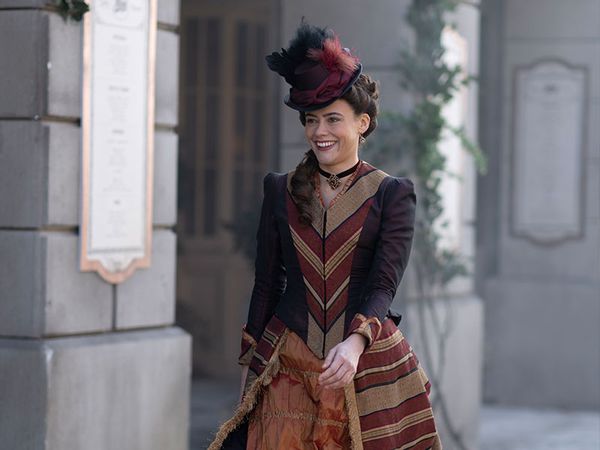 Sophie Robertson as Arabella Acaster in "Miss Scarlet and the Duke" (Courtesy of Element 8 Entertainment and MASTERPIECE / Sergej Radovic)
Sophie Robertson as Arabella Acaster in "Miss Scarlet and the Duke" (Courtesy of Element 8 Entertainment and MASTERPIECE / Sergej Radovic)If there is one thing fans of period dramas like "Miss Scarlet and The Duke" know a lot about, it's a slow burn. But even those accustomed to drawn-out romances — the fans who enjoy the longing looks and all the things that go unsaid as the tension steadily builds — have reached their limit with regards to the complicated relationship that has been brewing between Eliza and William since the start of the series.
The headstrong duo have essentially been stuck in a holding pattern since the Season 2 premiere, when it was casually revealed they regularly dine together. It wasn't much, but it felt like Eliza and William might soon acknowledge what's been painfully clear to everyone around them: that beneath the veneer of friendship and the latter's frequent frustration with the former are two people in love who'd be desperately lost without each other. Two full seasons and some complex feelings on marriage and Eliza's career later and they're essentially in the same place they were then, if not worse off.
The decision this season to have William embark on a relationship with Eliza's childhood nemesis – Arabella Acaster (Sophie Robertson) – turned mostly friendly acquaintance (a decision he had to know would hurt her) was an unnecessary roadblock that only exacerbated fans' growing frustrations. After all, it's not as if William hadn't realized his feelings for Eliza. If anything, Eliza is the person holding them back. So, theirs isn't so much a slow-burn romance as an example of writers blatantly going out of their way to keep characters apart believing it makes for good TV. It doesn't. The inaction has to end.
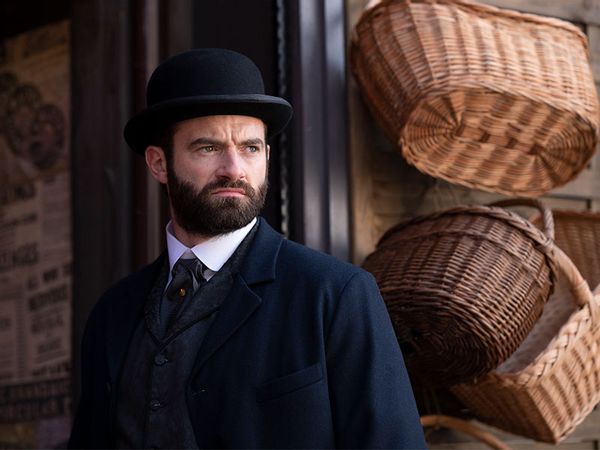 Stuart Martin as William "The Duke" Wellington in "Miss Scarlet and the Duke" (Courtesy of Element 8 Entertainment and MASTERPIECE / Dunja Dopsaj)
Stuart Martin as William "The Duke" Wellington in "Miss Scarlet and the Duke" (Courtesy of Element 8 Entertainment and MASTERPIECE / Dunja Dopsaj)There's likely a reasonable explanation for Martin's absence from two of the season's six episodes, but one of the downsides of a short episode order like this one is that two episodes equates to one-third of the season. Screen time matters more on a show like "Miss Scarlet and The Duke" than it does on shows with eight or even 13 episodes. But it matters even more when one is portraying one of the two characters in the show's title. Without William around to quietly brood and/or assist Eliza (or she him) in both "Hotel St. Marc" and "Bloodline," the writers were forced to look elsewhere to fill out their narrative, and the results were middling at best.
The former episode took Eliza to France where — away from her friends like William and Moses (Ansu Kabia) — she engaged in a battle of wits with fellow private detective Patrick Nash (Felix Scott) in a hotel-set mystery involving an infamous con artist (or two). The latter hour then offered up a backstory for Phelps (Tim Chipping), a detestable police detective who did little to earn a backstory, let alone one slightly sympathetic.
While it's always good practice to let secondary characters shine in the name of world-building or even to give leads some time off, these episodes arguably suffered too much without William to act as a balancing presence in the narrative. And when the series' foundation is built and relies upon the natural chemistry of the actors and budding on-screen romance between Eliza and William, removing half the central equation will always have it coming up short.
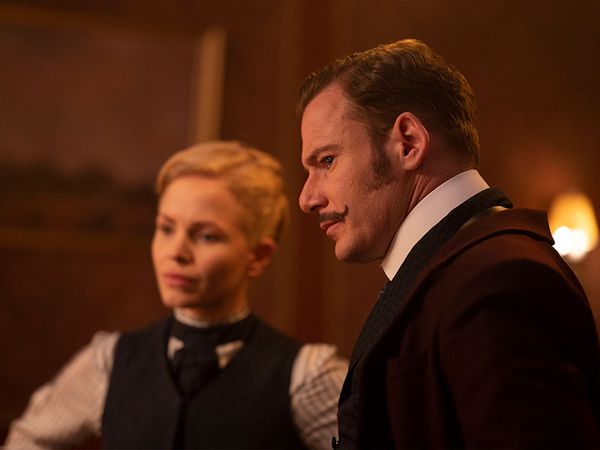 Kate Phillips as Eliza Scarlet and Felix Scott as Patrick Nash in "Miss Scarlet and the Duke" (Courtesy of Element 8 Entertainment and MASTERPIECE / Dunja Dopsaj)
Kate Phillips as Eliza Scarlet and Felix Scott as Patrick Nash in "Miss Scarlet and the Duke" (Courtesy of Element 8 Entertainment and MASTERPIECE / Dunja Dopsaj)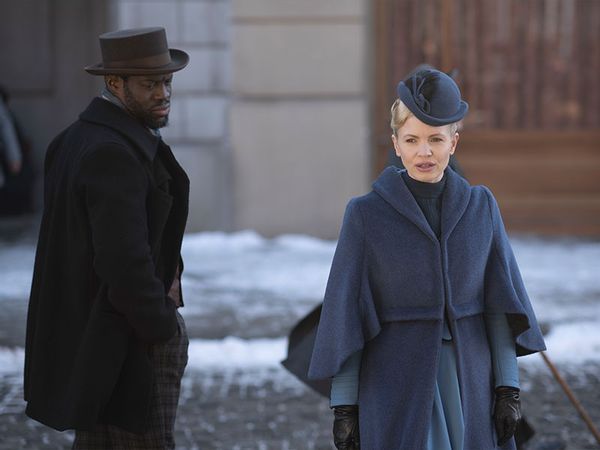 Ansu Kabia as Moses and Kate Phillips as Eliza Scarlet in "Miss Scarlet and the Duke" (Courtesy of Element 8 Entertainment and MASTERPIECE / Sergej Radovic)
Ansu Kabia as Moses and Kate Phillips as Eliza Scarlet in "Miss Scarlet and the Duke" (Courtesy of Element 8 Entertainment and MASTERPIECE / Sergej Radovic)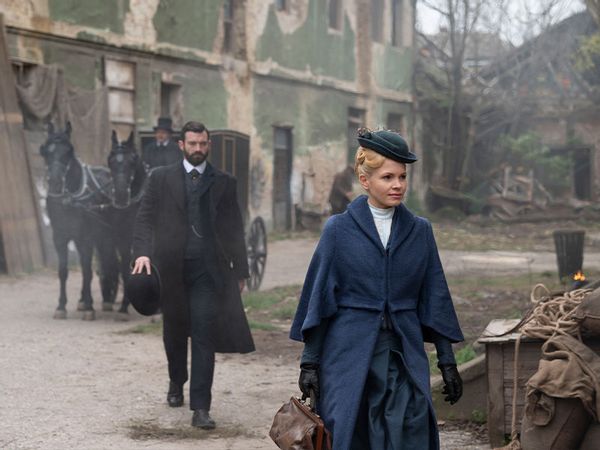 Stuart Martin as William "The Duke" Wellington and Kate Phillips as Eliza Scarlet in "Miss Scarlet and the Duke" (Courtesy of Element 8 Entertainment and MASTERPIECE Photographer / Sergej Radovic)
Stuart Martin as William "The Duke" Wellington and Kate Phillips as Eliza Scarlet in "Miss Scarlet and the Duke" (Courtesy of Element 8 Entertainment and MASTERPIECE Photographer / Sergej Radovic)

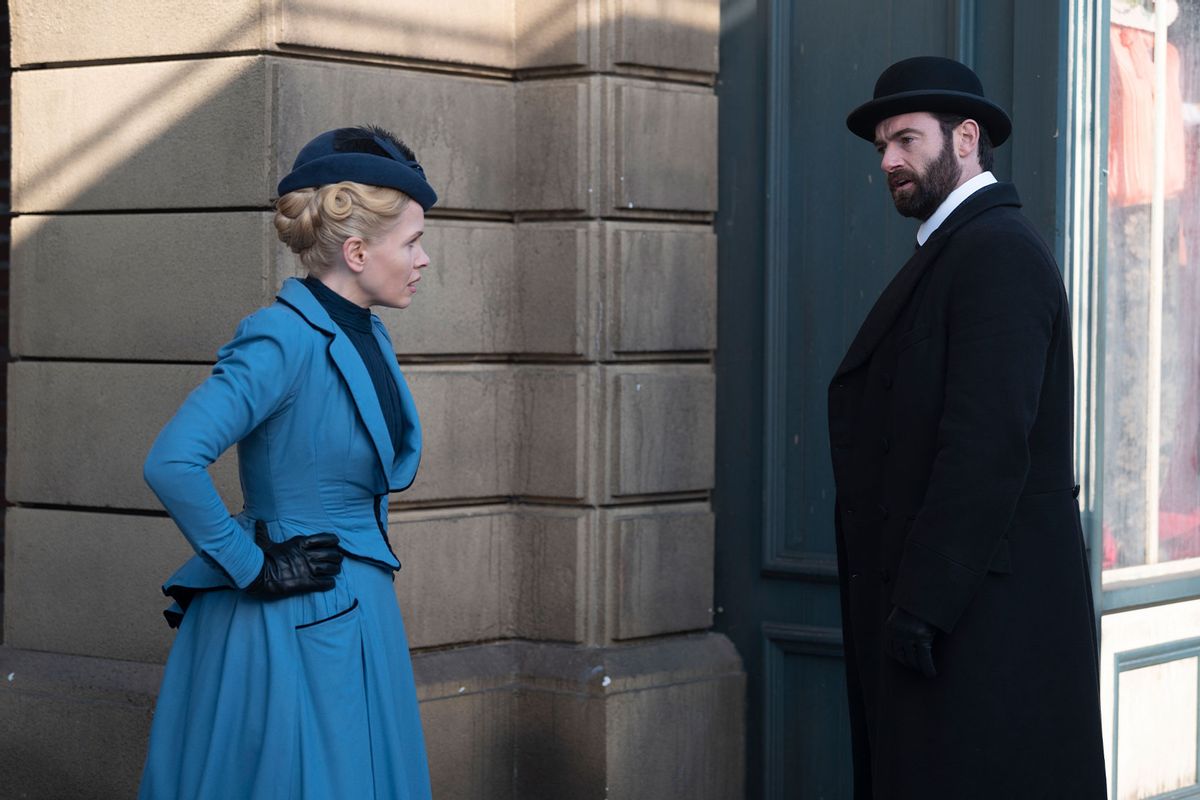
Shares